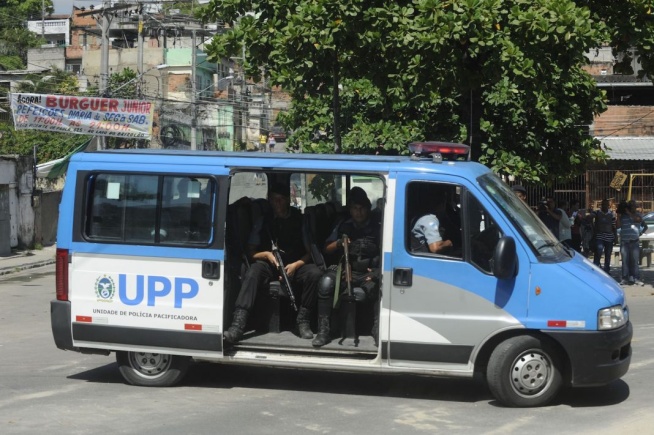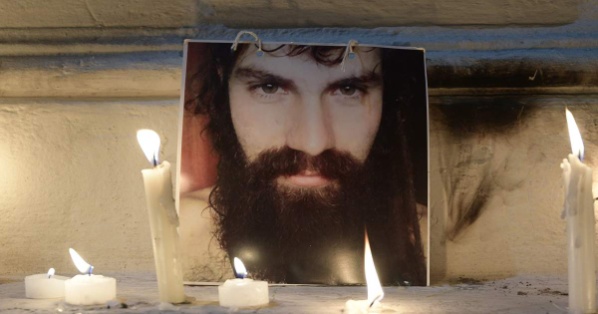This month’s newsletter includes good news from Paraguay regarding families from the Guahory Community, who were the subject of an Urgent Action in July. There has also been a Court ruling in Chile tightening the parole conditions for violators of human rights.
We have four Urgent Actions, one for Colombia, two for Venezuela and one for Chile. There is particularly concerning news regarding Colombia and Brazil.
COLOMBIA
Amnesty International has issued an Urgent Action on behalf of Enrique Cabezas, leader of the collective of Afro-descendent territory in Curvaradó , Chocó department. He has received several threats in response to his work defending the ancestral territory and the right of the communities to not to be involved in the armed conflict. Please write to the authorities in the UA.
In a press release, Amnesty states, “Since President Iván Duque took office, the number of reports of threats and attacks that Human Rights defenders report to our organization has increased exponentially. The situation is so serious that, during his recent visit, the United Nations Special Rapporteur on human rights defenders declared that he had been horrified and appalled at the fear expressed by defenders in meetings.” Although the President has signed a decree on a new protection plan, the organisation notes “All these institutional and legislative “advances” have turned out to be paper promises that have no real impact on the lives of defenders.”
Richard met four people closely involved in the peace process, including the EU’s representative. While the demobilisation and reinsertion of the FARC guerrillas is proceeding, major obstacles to effectively implementing the Peace Accord include:
- The Special Jurisdiction for Peace (JEP) is vastly under resourced, meaning that the process for compensating victims and restoring their rights is far too slow.
- The lack of infrastructure in Colombia, particularly transport, hampers efforts to develop and provide services to rural communities that are in war zones or in those areas once occupied by the FARC.
However, the US interest in the peace process continues and the UK’s support has been strong and consistent. It is possible that some of the necessary finance may come from the European Investment Bank. The meeting was organised by Justice for Colombia, whose Peace Monitor #2 can be downloaded here.
Peace Brigades International denounce the Armed Forces’ night-time bombing and strafing of land belonging to a rural community in Chocó. The community reported that no fire was returned during the three hours of the operation. They had not experienced such terror in ten years. If this is an attempt to drive them off their land, then they say that they will remain.
BRAZIL
The IACHR and OHCHR for South America condemn the murders of two activists for the Landless Workers Movement (MST, by its Portuguese acronym) in the Brazilian state of Paraíba, and of a leader of rural settlements in the State of Pará. The IACHR and the OHCHR urge the Brazilian State to investigate those events with due diligence, considering the victims’ activities in defence of human rights, and to address the structural causes of those acts of violence, which are linked to the struggle for land rights in Brazil. See The Inter-American Commission on Human Rights (IACHR) and the Regional Office of the United Nations High Commissioner for Human Rights (OHCHR) press release.
Rio Times reports on the tenth anniversary of the public security program that gave rise to the Unidade de Policia Pacificadora (Pacifying Police Unit – UPP), operating in some of Rio’s largest favela communities.

The UPPs promised a safer, more inclusive life in one of Brazil’s largest cities, but for many the units just brought more violence. “The UPP has failed massively. Broken promises and increased violence are not a success in the eyes of the favelas,” says Jody King, founder of a school in Rocinha favela.
Rio Times reports that Rio de Janeiro councillor Marcello Siciliano, who is being investigated in relation to the murder of councillor Marielle Franco and her driver Anderson Gomes in April, has requested that federal authorities take over the case and bring greater transparency to the proceedings. He has vehemently denied any role in her killing.

On 29 November, an Argentine federal judge closed the proceedings investigating the death and disappearance of Santiago Maldonado. Santiago, a 28-year-old activist, disappeared for 70 days from 1 August 2017 following a violent raid by the National Gendarmerie on a Mapuche community. Amnesty has called on the Argentine authorities to clarify the facts of the case, pursue all hypotheses as to what could have led to his death, and comply with their obligation to guarantee the rights of his family to truth, justice and reparation.
On 3 December, the Argentine Security Ministry approved a resolution on the use of firearms by members of federal security forces. According to Human Rights Watch, the resolution runs counter to basic human rights standards and could encourage shootings in unjustifiable circumstances.
VENEZUELA
There is still time to respond to two Urgent Actions. The first relates to 59 Colombian nationals who remain in detention following a security operation in 2016. On 21 November, the Venezuelan Supreme Court of Justice overturned an order issued a year earlier for their release. The second concerns the Pemón Indigenous communities in the Canaima National Park (western Venezuela), who were the target of a violent attack during a two-day military operation for which there was no justification. The communities fear for their safety in the context of these operations and the militarization of their ancestral territory ordered by the national government.
This Human Rights Watch report provides an insight into the impact of the collapse of the health system and the situation faced by those who have fled to Brazil to get treatment.
CHILE
Chile’s Constitutional Court has upheld measures tightening the requirements for human rights violators to get parole. The decision is a defeat for conservative forces in the ruling party which had asked the court to declare the requirements as unconstitutional.
PARAGUAY
GOOD NEWS! Families from the Guahory Community, Eastern Paraguay, about whom we circulated an Urgent Action in July, are no longer at imminent threat of forced eviction. The implementation of the “Joint Action Plan for Punishable Actions for Trespassing on Property” has been suspended in their community. Thank you to those who sent appeals.
Another Urgent Action that is still current. Bruno Almada Comas, a young queer artist, is being accused of “acts of exhibitionism” based on a performance denouncing violence and discrimination faced by LGBTI people in Paraguay. We have no news yet of the preliminary hearing of his case, which was scheduled for 19 December. If he is found guilty, he could face one year in prison.
REGIONAL
The UK Parliament’s Foreign Affairs Committee have released several submissions to their enquiry on Global Britain and South America, including our own, which you can access here.
Thomas Reuters Foundation reports that a rise in small-scale illegal gold mining is destroying swathes of the Amazon rainforest. The scale of the damage is mapped for the first time. Researchers used satellite imagery and government data to identify at least 2,312 illegal mining sites across six countries in South America, Brazil, Bolivia, Colombia, Peru, Ecuador and Venezuela. The report includes concerns expressed by a Venezuelan indigenous leader and fears regarding the policies of the new president in Brazil.
Thanks to all of you who have responded to Amnesty’s Urgent Actions and petitions in the region.
South America Team – Richard Crosfield (Colombia), David Palmer (Brazil) and Graham Minter (rest of South America).